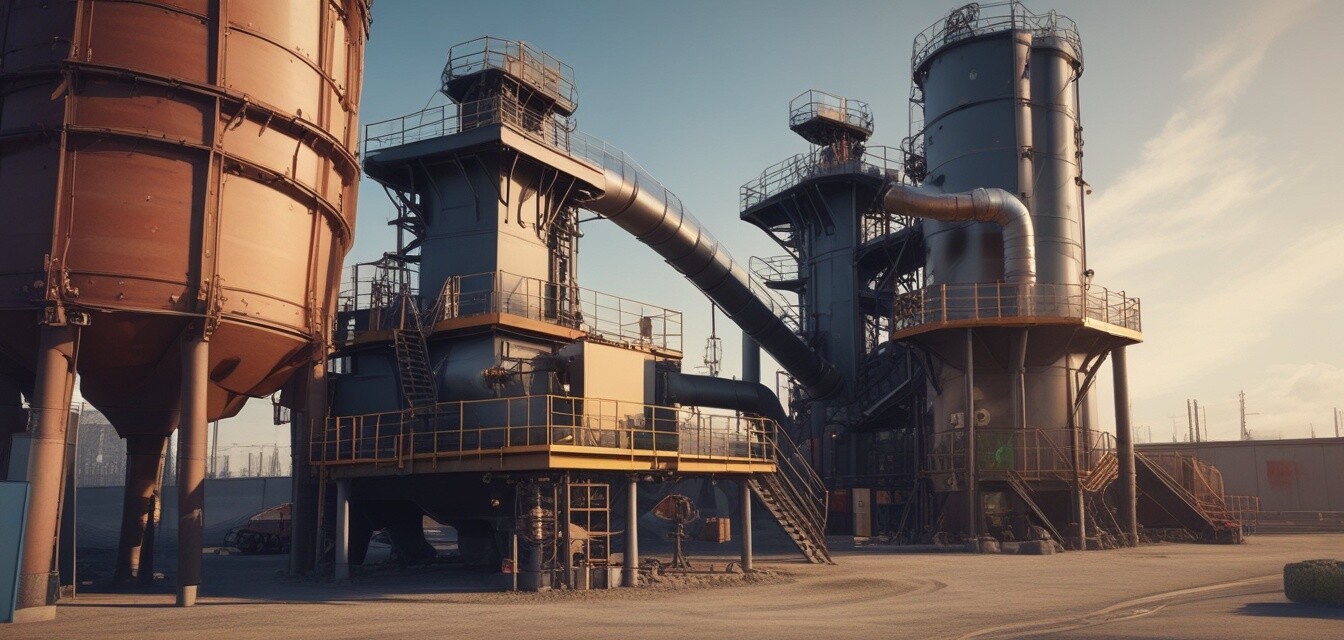
How New Technologies Are Influencing Asphalt Quality Standards
Key Takeaways
- Advancements in technology are improving the quality standards of asphalt production.
- New mixing techniques and equipment enhance the performance of asphalt pavements.
- Emerging data analytics tools are being utilized for better quality control.
- Innovations in materials are leading to longer-lasting asphalt surfaces.
- Understanding these trends can help contractors and DIY enthusiasts make informed decisions.
The asphalt paving industry has long relied on traditional methods of production and quality assurance. However, with the rapid advancements in technology, the industry is experiencing a significant transformation. New technologies are reshaping how asphalt is produced, tested, and applied, leading to improved quality standards. In this article, we'll delve into the various ways technology is influencing asphalt quality, and what it means for contractors and property owners alike.
The Importance of Asphalt Quality Standards
Quality standards in asphalt production are crucial for ensuring durability, safety, and longevity of pavement surfaces. High-quality asphalt not only withstands traffic stress but also enjoys resistance to environmental factors such as weather and wear. As paving industries strive to meet these standards, they increasingly turn to technology to enhance each step of the asphalt production process.
Understanding the Role of Technology
The introduction of advanced technologies in asphalt production encompasses various sectors including materials science, engineering, and data analytics. Below, we highlight some of the key technological advancements shaping asphalt quality standards.
1. Advanced Mixing Techniques
| Mixing Technique | Description | Benefits |
|---|---|---|
| Warm Mix Asphalt | Lower temperatures for mixing and compacting asphalt, reducing energy consumption. | Improved workability and reduced emissions. |
| Reclaimed Asphalt Pavement (RAP) | Recycling old asphalt materials and integrating them into new mixes. | Cost efficiency and sustainability. |
| Modified Asphalt | Additives improve properties such as elasticity and durability. | Longer-lasting pavements with improved performance. |
2. Data Analytics for Quality Control
Data analytics technology is transforming quality assurance in asphalt paving. By utilizing real-time data collection and analysis, contractors can monitor production variables and make adjustments as needed.
- Predictive Analytics: Anticipates potential quality issues before they arise, allowing for proactive interventions.
- Machine Learning: Algorithms learn from past data to continuously improve quality control measures.
- Remote Monitoring: Provides insights into production processes and equipment performance.
3. Innovations in Material Science
Advances in material science are also playing a pivotal role in enhancing asphalt quality. New materials and additives significantly improve the properties of asphalt mixes. For example, nanomaterials have shown promise in increasing the strength and flexibility of asphalt pavements.
Tips for Adapting to New Technologies in Asphalt Paving
- Stay informed about the latest advancements by joining industry associations.
- Invest in training for your workforce to embrace new technologies.
- Evaluate your current processes for areas where technology can enhance quality.
- Consider partnerships with suppliers who understand modern materials and equipment.
- Experiment with mixtures and techniques on smaller projects before full-scale applications.
Emerging Trends in the Asphalt Industry
As the industry continues to evolve, several trends are emerging, driven by technological advancements:
- Sustainability: There is a growing focus on eco-friendly practices, including recycling asphalt and using warm mix asphalt.
- Automation: Automation is streamlining asphalt production, leading to consistent quality and reduced labor costs.
- Smart Technology: The integration of IoT devices allows for real-time monitoring and predictive maintenance of equipment.
Conclusion
The asphalt paving industry stands on the brink of a technological revolution. Understanding how new technologies influence asphalt quality standards is essential for contractors and DIY enthusiasts alike. By staying informed and adapting to these advancements, stakeholders can ensure that their paving projects meet the highest standards of quality and performance.
Pros
- Enhanced durability and lifespan of asphalt pavements.
- Increased efficiency in production and application processes.
- Reduced environmental impact through sustainable practices.
Cons
- Initial costs for advanced technology may be high.
- Need for skilled workforce to manage new technologies.
- Ongoing maintenance and updates for technology systems required.
For further reading on asphalt paving techniques and technologies, explore our buying guides and stay updated with news and trends in the industry.
To enhance your projects, check out our sections on asphalt mixes and additives, asphalt pavers and rollers, and essential safety gear for paving!

